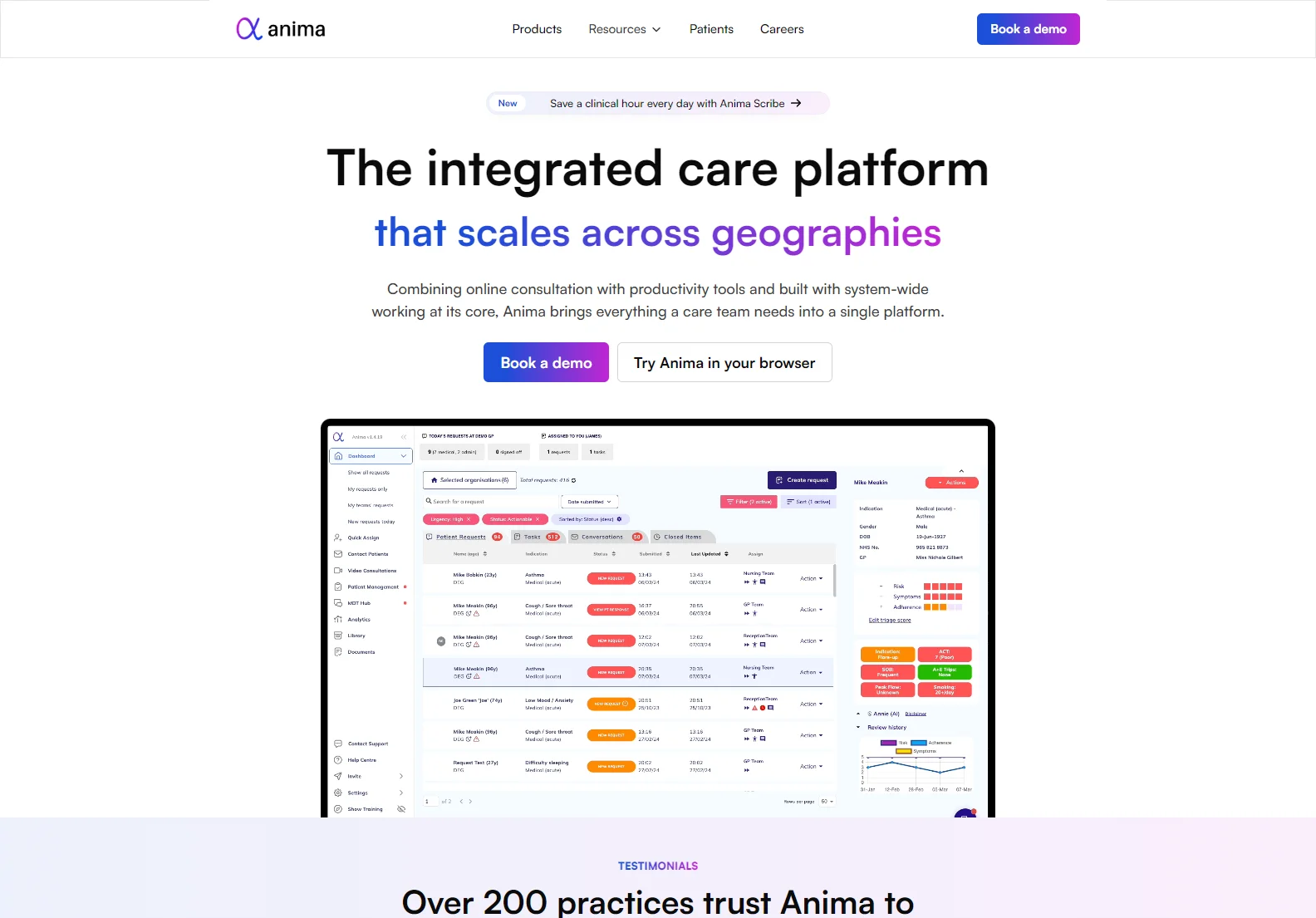Anima: Revolutionizing Primary Care with AI-Powered Automation
Anima is an integrated care platform designed to streamline primary care workflows and enhance patient experiences. By combining online consultations with productivity tools, Anima offers a comprehensive solution for healthcare teams, saving them valuable time and improving overall efficiency.
Key Features
- Triage: Contextual patient questionnaires linked to clinical guidelines, identifying key negatives and red flags.
- Appointments: Direct integration with practice rotas for seamless appointment scheduling.
- Documents: Automated patient matching, document summaries, code suggestions, and task suggestions to reduce processing time.
- Analytics: Data-driven insights to optimize clinic performance and track clinical improvements.
- Integrations: Seamless integration with EHR systems (EMIS, SystmOne), GP Connect, and PDS for patient verification.
- Messaging: Personalized communication tools for individual or batch messaging.
- Workflow Automation: (Coming soon) Automation of various general practice tasks.
- Collaboration: Facilitates communication between primary, secondary, and community care teams.
Benefits
- Increased Efficiency: Automates manual tasks, saving clinicians time and resources.
- Improved Patient Outcomes: Streamlined workflows lead to better patient care and satisfaction.
- Enhanced Collaboration: Improves communication and coordination among healthcare professionals.
- Data-Driven Decision Making: Provides valuable insights for optimizing clinic performance.
Comparisons
While several other platforms offer online consultation features, Anima distinguishes itself through its comprehensive integration of various productivity tools and its focus on system-wide workflow optimization. Unlike solutions that focus solely on online booking, Anima provides a holistic approach to primary care management.
Case Studies
Anima has successfully helped numerous organizations improve their care delivery. For example, Eleanor Cross Healthcare experienced significant time savings on triage, allowing them to conduct more clinics. Fordingbridge has benefited from improved prioritization of patient cases using Anima's total triage system.
Conclusion
Anima is a powerful tool for modernizing primary care. Its comprehensive features, seamless integrations, and focus on automation make it a valuable asset for healthcare teams looking to improve efficiency, enhance patient care, and optimize their clinic's performance.
